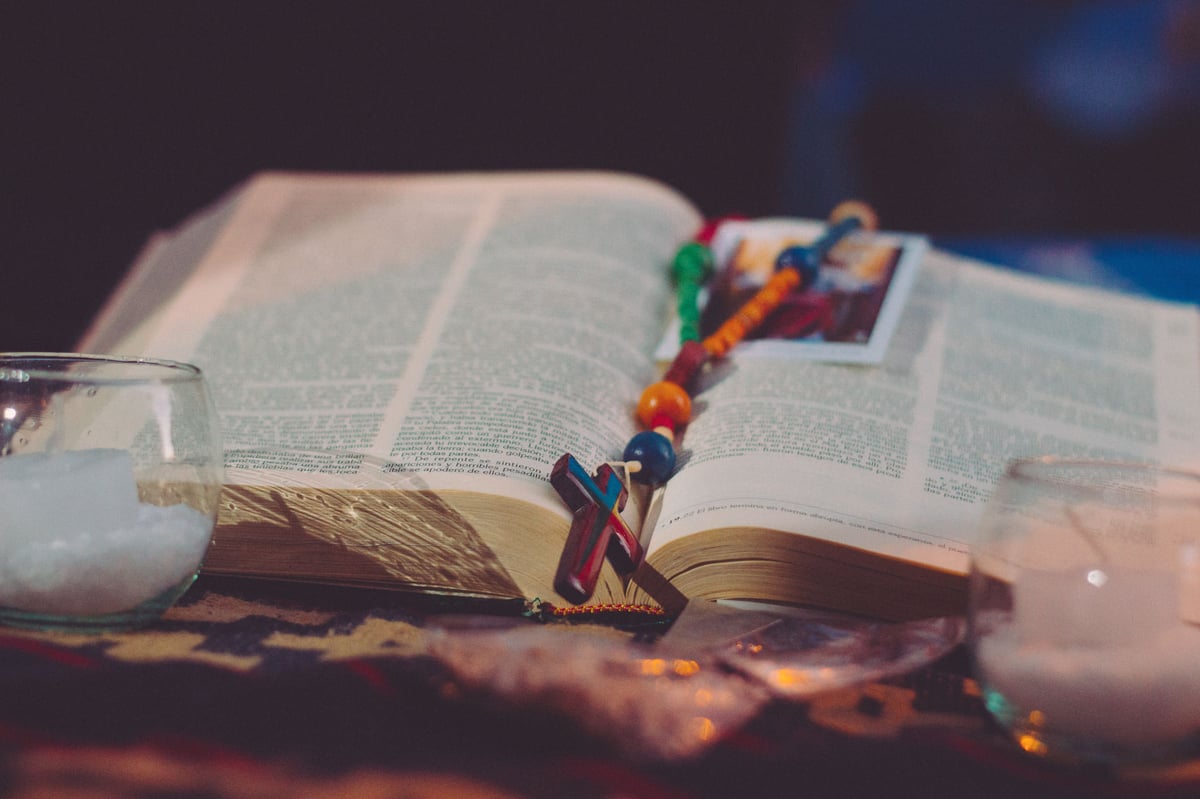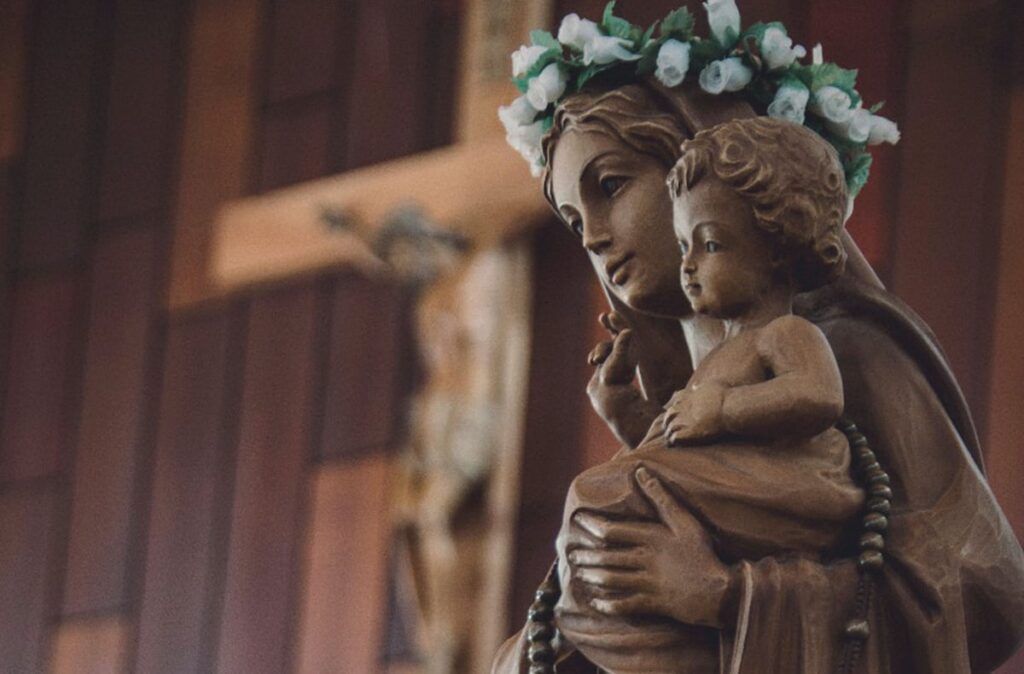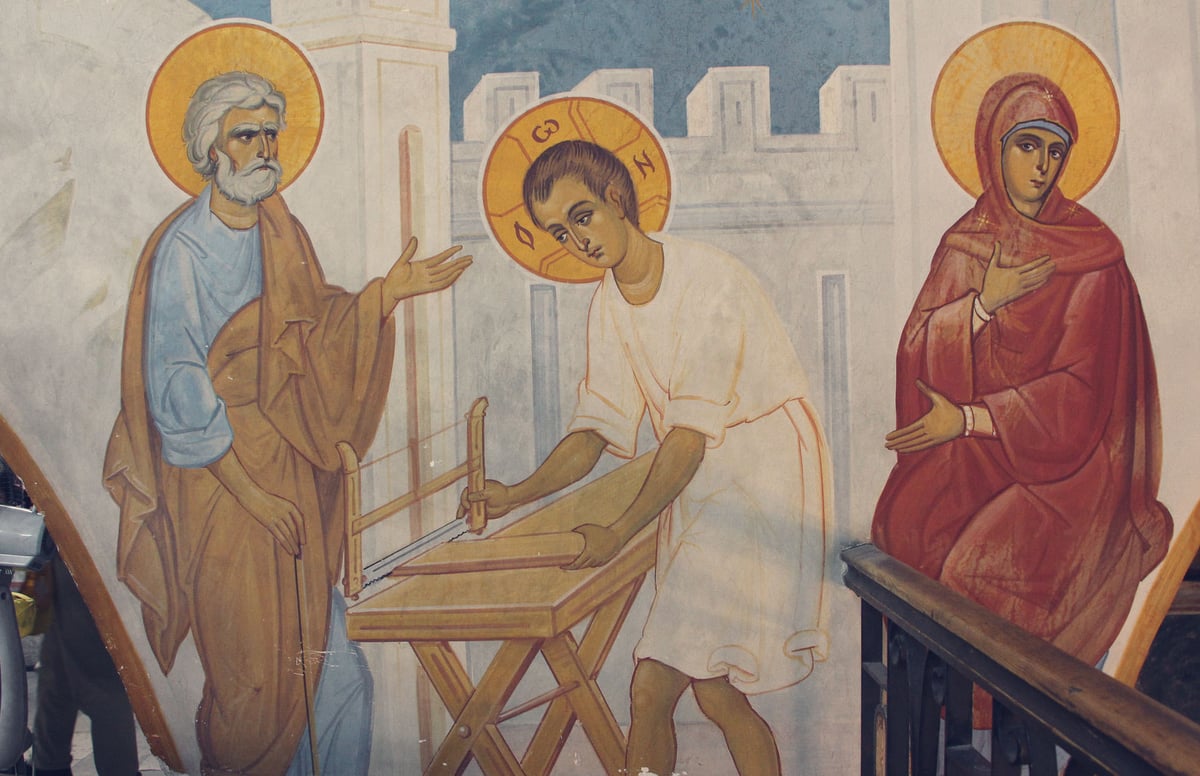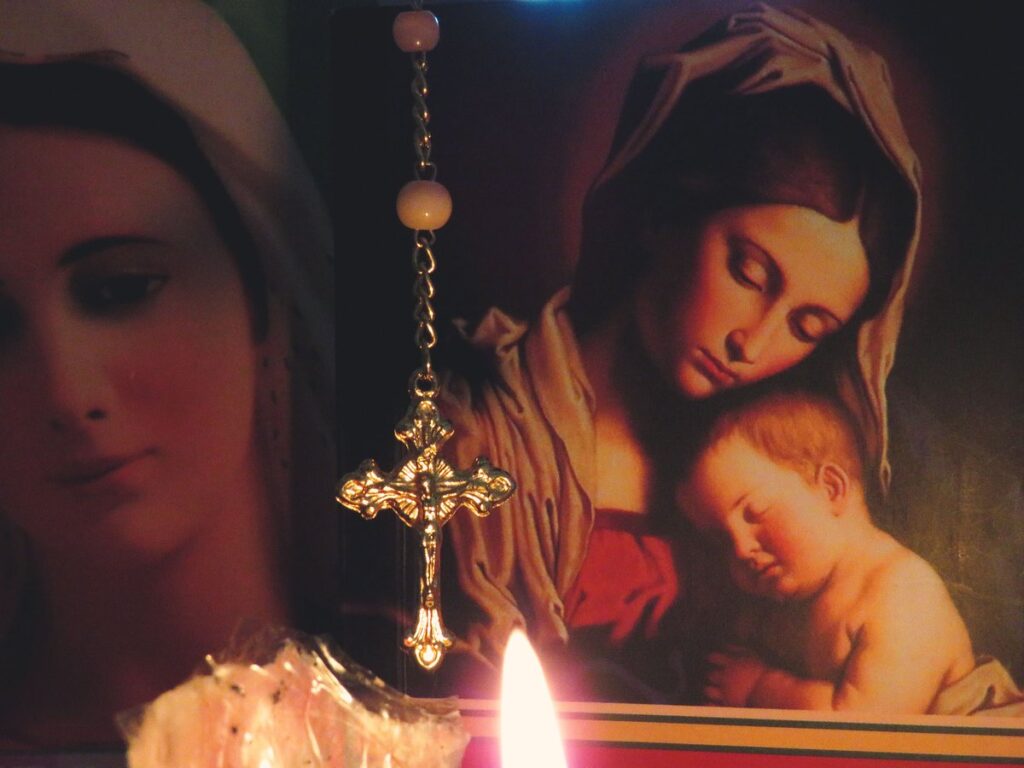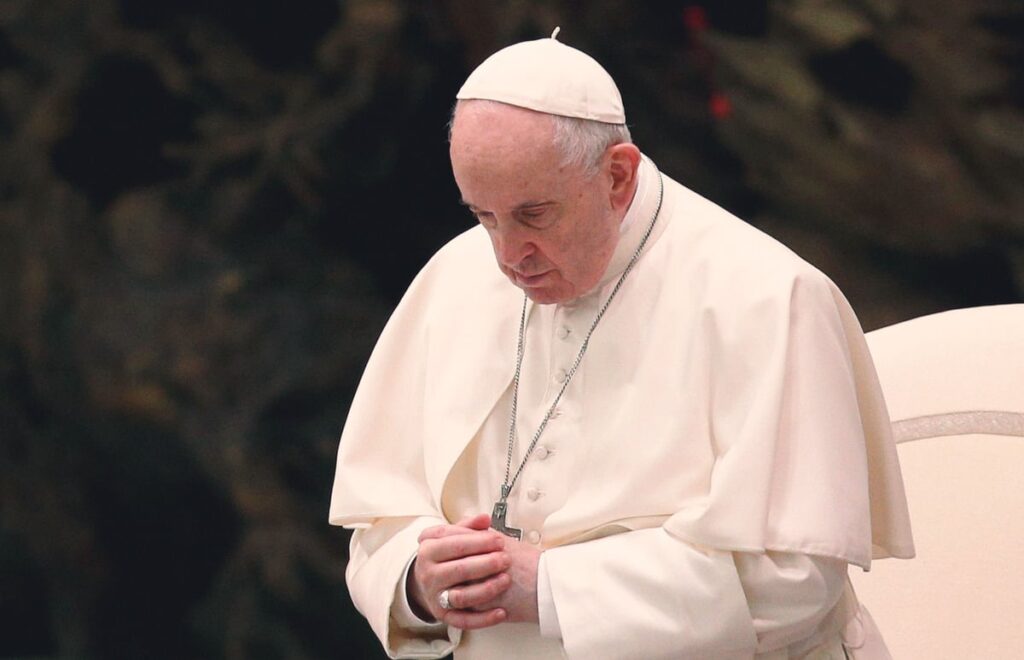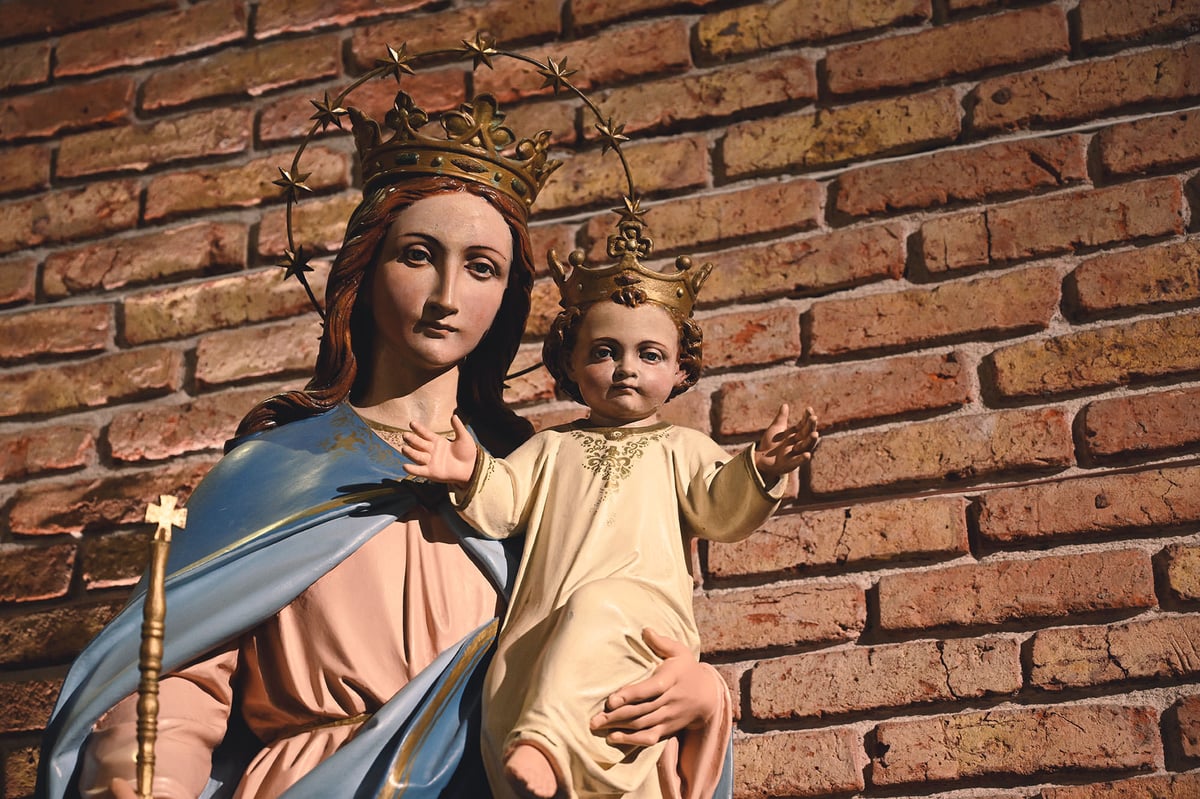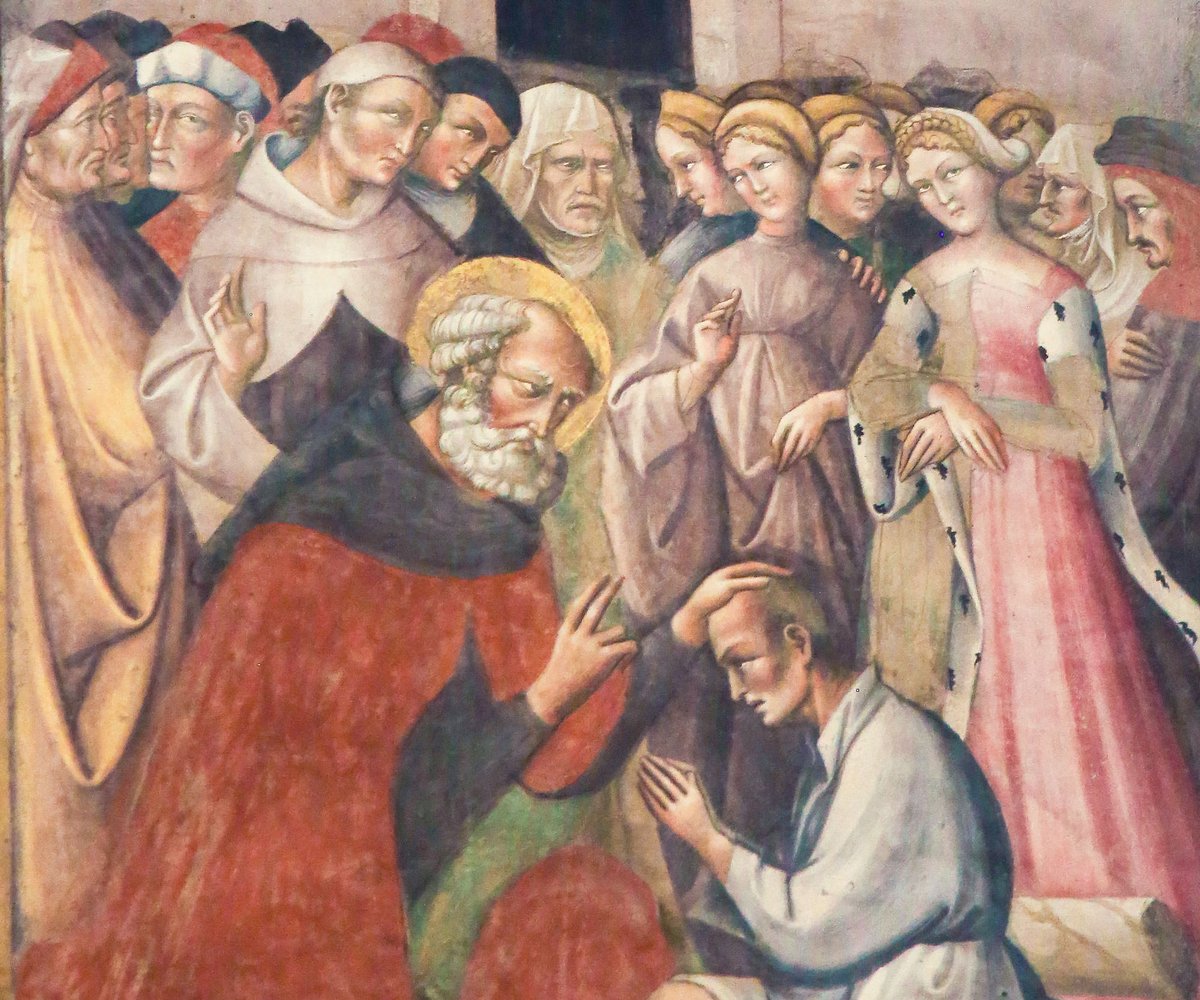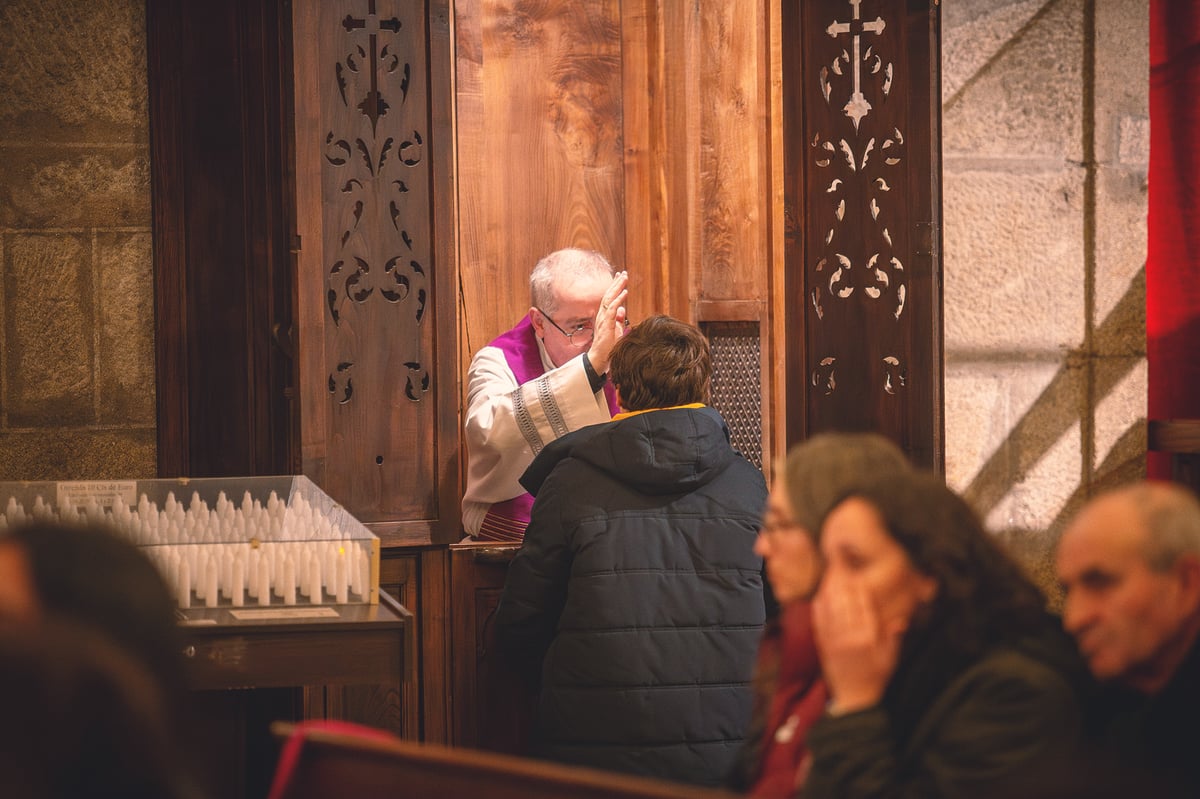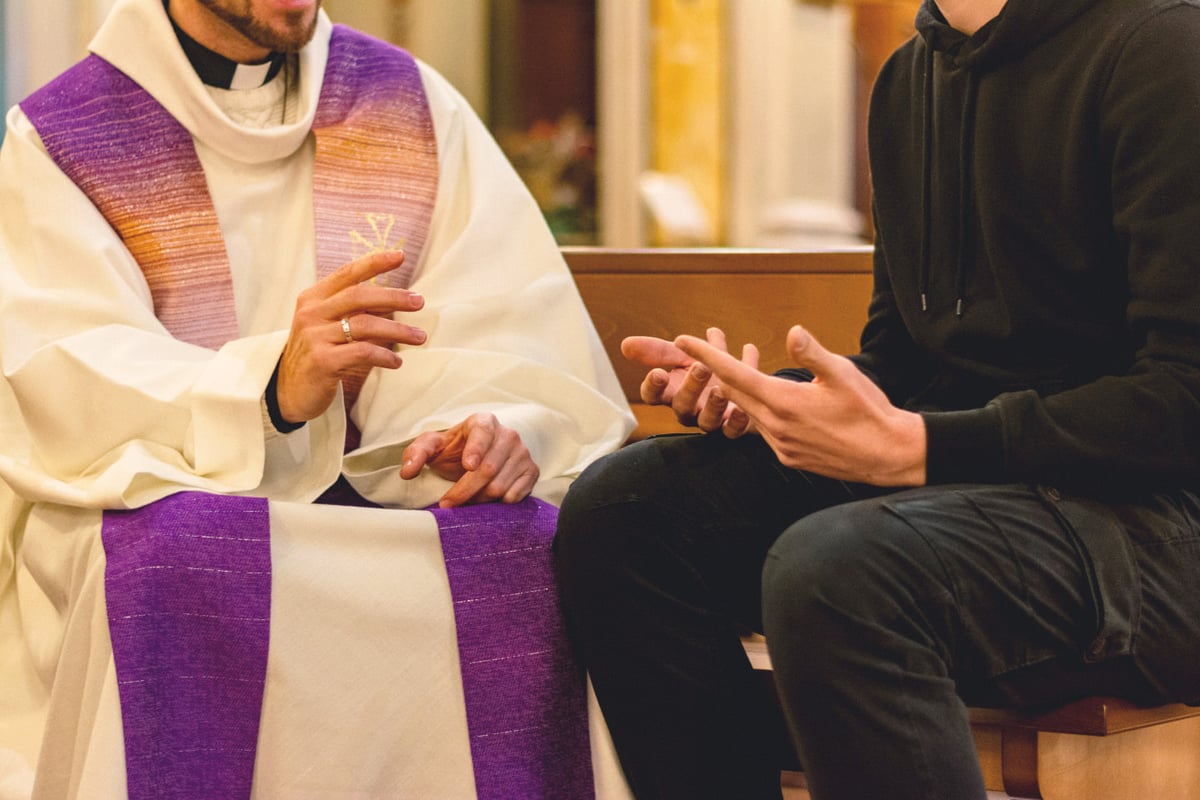Where is the Hail Mary in the Bible?
The Hail Mary is divided into two parts: 1. Who Mary is. 2. Our prayer to Mary. Below the Hail Mary is examined line by line."Hail Mary, full of Grace"Scripture: Luke 1:28 (Hail, full of Grace)Explanation: The Angel Gabriel greets Mary with a very respectful greeting used for royalty. The...
